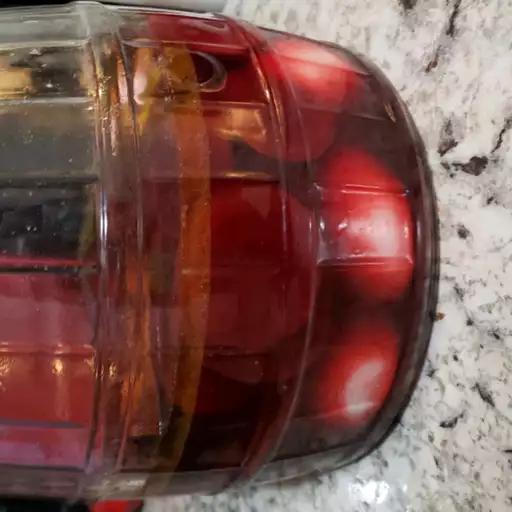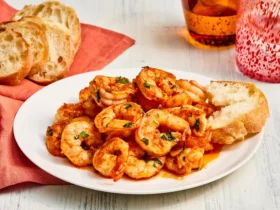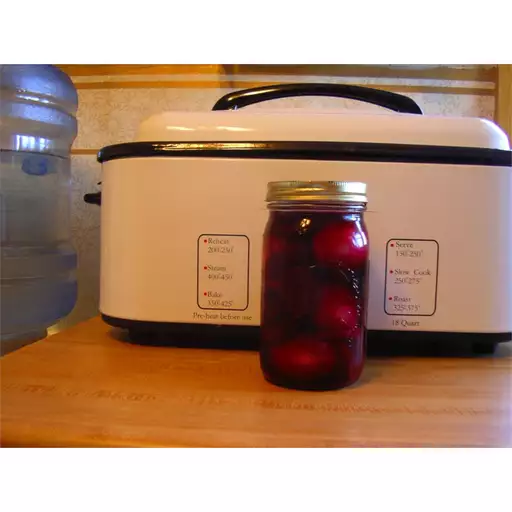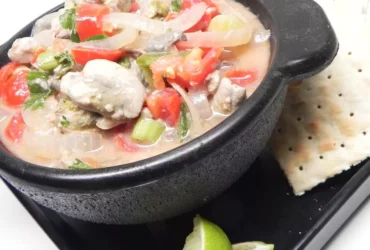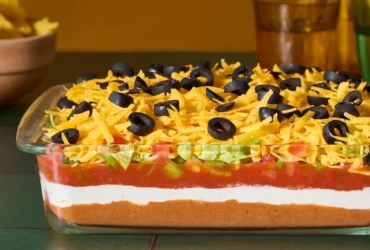Ingredients and Equipment
Cut up 1 dozen hard-boiled eggs into quarters or sixths
To make delicious pickled eggs, you’ll need to start by preparing the ingredients and gathering the necessary equipment.
Ingredients
The following are the ingredients you’ll need for this recipe:
- 1 dozen hard-boiled eggs
- 1/4 cup granulated sugar
- 1/2 cup white vinegar
- 1 tablespoon pickling salt
- 1 teaspoon ground black pepper
- 1 teaspoon smoked paprika (optional)
- Celery seeds or dill pickle mix for added flavor (optional)
Equipment
The following equipment is required to prepare and store the pickled eggs:
- A large glass jar with a lid, such as a Mason jar or a Pickle Jar
- A colander or strainer for draining excess water from the eggs
- A cutting board and sharp knife for cutting up the eggs into quarters or sixths
- A spoon or slotted spoon for scooping out the egg pieces from the jar
- A glass measuring cup or a small bowl for mixing the pickling liquid
Instructions
Now that you have your ingredients and equipment ready, it’s time to cut up the hard-boiled eggs. To do this:
- Carefully place a dozen hard-boiled eggs on a cutting board.
- Using a sharp knife, carefully cut each egg into quarters or sixths, depending on your desired size for the pickled eggs.
- Place the cut-up egg pieces into a colander or strainer to drain excess water. This step is crucial in ensuring that the egg pieces don’t become too soggy while they’re soaking in the pickling liquid.
This will be followed by the actual process of making the pickled eggs, which involves mixing the sugar, vinegar, salt, black pepper, and smoked paprika (if using) together to create a tangy and flavorful brine. Once this is complete, you can layer the cut-up egg pieces in the glass jar with the pickling liquid and let them soak for at least 24 hours before serving.
In a saucepan, combine 4 cups of water, 2 cups of vinegar, 1 cup of kosher salt, 1/4 cup of granulated sugar, 1 tsp. of ground turmeric, and 1 tsp. of red pepper flakes.
The process of making pickled eggs involves combining a mixture of ingredients in a saucepan to create a brine solution that will help preserve and flavor the eggs.
To begin, you’ll need a few key ingredients, including:
Water
4 cups – This is used as the base for the brine solution. The amount of water may be adjusted depending on personal preference, but this ratio provides a good balance between liquid and solids.
Vinegar
2 cups – Vinegar helps to add flavor, preserve the eggs, and provide an acidic environment that inhibits bacterial growth. You can use either white vinegar or apple cider vinegar for this recipe.
Kosher salt
1 cup – This is used as a primary seasoning agent in the brine solution. Kosher salt has a coarser texture than table salt, which makes it easier to dissolve and adds depth to the flavor of the pickled eggs.
Granulated sugar
1/4 cup – Sugar helps balance out the acidity from the vinegar and provides a hint of sweetness in each bite. You can adjust the amount of sugar based on your taste preferences.
Turmeric: 1 tsp. – This spice adds a vibrant yellow color to the pickled eggs and has natural anti-inflammatory properties. The turmeric will also give the brine solution a slightly earthy flavor, which complements the other ingredients.
Red pepper flakes: 1 tsp. – These add heat to the pickled eggs, so adjust the amount based on your desired level of spiciness. Red pepper flakes come from dried and crushed red peppers, providing a smoky heat that enhances the overall flavor.
In addition to these ingredients, you’ll need some basic equipment for this recipe:
A saucepan
This is where you will combine all the ingredients and bring them to a boil. Use a saucepan large enough to hold 6-8 cups of liquid, as it needs room to expand during heating.
A stovetop or heat source
This is used to bring the brine solution to a boil and then reduce the heat to maintain a simmer. You can use any type of stovetop, including gas, electric, or induction.
A candy thermometer
While not strictly necessary, this helps monitor the temperature of the brine solution as it cools down to around 165°F (74°C) for proper sterilization and cooling. If you don’t have a candy thermometer, let the solution cool at room temperature or in an ice bath before storing it.
Preparing the Brine and Cooking the Eggs
Bring the mixture to a boil over high heat, stirring occasionally.
To prepare the brine for the pickled eggs, combine 1 quart of water with 1 cup of kosher salt, 2 tablespoons of brown sugar, and 2 tablespoons of black peppercorns in a saucepan.
Heat the mixture over medium heat, stirring occasionally, until the salt and sugar have dissolved completely. Be careful not to let the mixture boil as this can cause the salt to crystallize out.
Bring the mixture to a boil over high heat, stirring occasionally, then reduce the heat to medium-low and simmer for 10-15 minutes or until the brine has cooled slightly.
While the brine is cooling, hard-boil some eggs by placing them in a single layer in a saucepan, covering them with cold water, and bringing the water to a boil over high heat. Remove from heat, cover, and let sit for 12-15 minutes or until the eggs are cooked through.
Once the brine has cooled slightly, peel the hard-boiled eggs and place them in a clean glass jar or container with a tight-fitting lid.
Pour the cooled brine over the eggs, making sure that they are completely covered. Seal the jar or container tightly and refrigerate for at least 24 hours to allow the pickling process to begin.
Reduce the heat to low and let it simmer for 5-7 minutes, or until the pickling liquid has reduced slightly.
- To prepare the brine, combine 1 cup of vinegar , 1/2 cup of water, 2 tablespoons of sugar , and 1 teaspoon of salt in a saucepan.
- Bring the mixture to a boil over medium heat, stirring until the sugar and salt are dissolved.
- Reduce the heat to low and let it simmer for 5-7 minutes, or until the pickling liquid has reduced slightly.
- Meanwhile, prepare the eggs by placing them in a single layer in a bowl or container.
- Pour the hot pickling liquid over the eggs, making sure they are completely covered.
- Let the eggs cool to room temperature in the brine, then cover and refrigerate for at least 24 hours before serving.
- To cook the eggs, place them in a single layer in a saucepan or pot.
- Add enough cold water to cover the eggs by about an inch.
- Place the saucepan over high heat and bring the water to a boil.
- Once boiling, reduce the heat to medium-low and let simmer for 10-12 minutes, or until the eggs are cooked through but still slightly soft in the center.
- Remove the eggs from the water with a slotted spoon and immediately transfer them to the bowl or container with the pickling liquid.
- The temperature of the brine will help to stop the cooking process and set the color of the yolk.
- Once the eggs have cooled, they are ready to be served in salads, as a snack, or used as a topping for other dishes.
Pickling and Storing the Eggs
Remove the saucepan from the heat and carefully place the egg pieces into a clean glass jar or container with a tight-fitting lid.
After removing the saucepan from the heat, carefully place the egg pieces into a clean glass jar or container with a tight-fitting lid. It’s essential to use a glass jar as it will not transfer any flavors or odors to the eggs.
The first step is to prepare the jar by washing and drying it thoroughly. Any residue or dirt can affect the flavor of the pickled eggs, so make sure it is sparkling clean before filling it with the egg pieces.
Step-by-Step Instructions for Storing Pickled Eggs:
- Once the jar is prepared, carefully place the egg pieces into it, leaving about a 1-inch space at the top of the jar.
- Filling the jar to this point will help prevent the eggs from becoming overcooked and developing an unpleasant texture.
Tips for Storing Pickled Eggs:
- Before filling the jar with pickling liquid, make sure it is at room temperature.
- This ensures that the vinegar doesn’t cool down too quickly when added to the eggs, which can cause the growth of bacteria and mold.
Pickling Liquid Instructions:
- Once the egg pieces are in the jar, pour the pickling liquid over them, leaving about a quarter inch at the top.
- The pickling liquid should cover the eggs completely to ensure they absorb all the flavors and spices.
Storing Pickled Eggs:
- Once the jar is filled with pickling liquid, make sure it is tightly sealed to prevent air from getting in and affecting the flavor of the eggs.
- Label the jar with the date you started pickling the eggs so that you can keep track of how long they’ve been stored in the refrigerator.
Refrigeration and Shelf Life:
- Store the jar of pickled eggs in the refrigerator at a temperature below 40°F (4°C).
- Properly stored, pickled eggs can last for several weeks to months. However, their quality will gradually degrade over time.
Tips for Optimizing Shelf Life:
- Make sure the jar is tightly sealed and that there are no signs of leakage or contamination.
- Check on the pickled eggs regularly to ensure they don’t develop any off odors, mold, or sliminess.
- Properly stored in a cool place, pickled eggs can be an enjoyable snack or addition to meals for several weeks.
Cover the eggs completely with the cooled pickling liquid, making sure they are fully submerged.
Pickling and storing eggs is a simple process that allows you to preserve hard-boiled eggs for several weeks or even months.
To start, it’s essential to have some basic ingredients available. You’ll need:
- Hard-boiled eggs
- Pickling spices (such as mustard seeds, coriander seeds, and dill seeds)
- Vinegar (white vinegar or apple cider vinegar work well)
- Sugar or salt to taste
- Water
The next step is to prepare the pickling liquid. In a saucepan, combine the vinegar, sugar or salt, and water. Add in your pickling spices (such as mustard seeds, coriander seeds, and dill seeds) and bring the mixture to a boil over high heat.
Once the liquid is boiling, reduce the heat to low and let it simmer for 5-10 minutes to allow the flavors to meld together. While the pickling liquid is cooking, prepare your eggs by peeling them after they have cooled slightly.
After the pickling liquid has cooled, you can begin the process of covering each egg completely with the liquid. This is crucial in order to prevent spoilage and ensure that the eggs stay fresh for an extended period of time.
Make sure to cover the eggs fully, leaving as little air exposed as possible. You can do this by placing a piece of plastic wrap or aluminum foil directly on top of the eggs, or by using a pickling jar with a tight-fitting lid. The key is to keep everything submerged under the liquid.
Once you’ve covered each egg completely with the cooled pickling liquid, place them in the refrigerator and store them at a temperature of 40°F (4°C) or below.
This will allow the eggs to stay fresh for several weeks. Over time, the flavors may mellow out slightly, but they should remain delicious and safe to eat.
- Best Datanyze Alternatives for 2025 - April 24, 2025
- Best Hunter.io Alternatives for 2025 - April 22, 2025
- Best Lead411 Alternatives for 2025 - April 22, 2025

